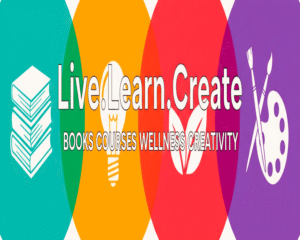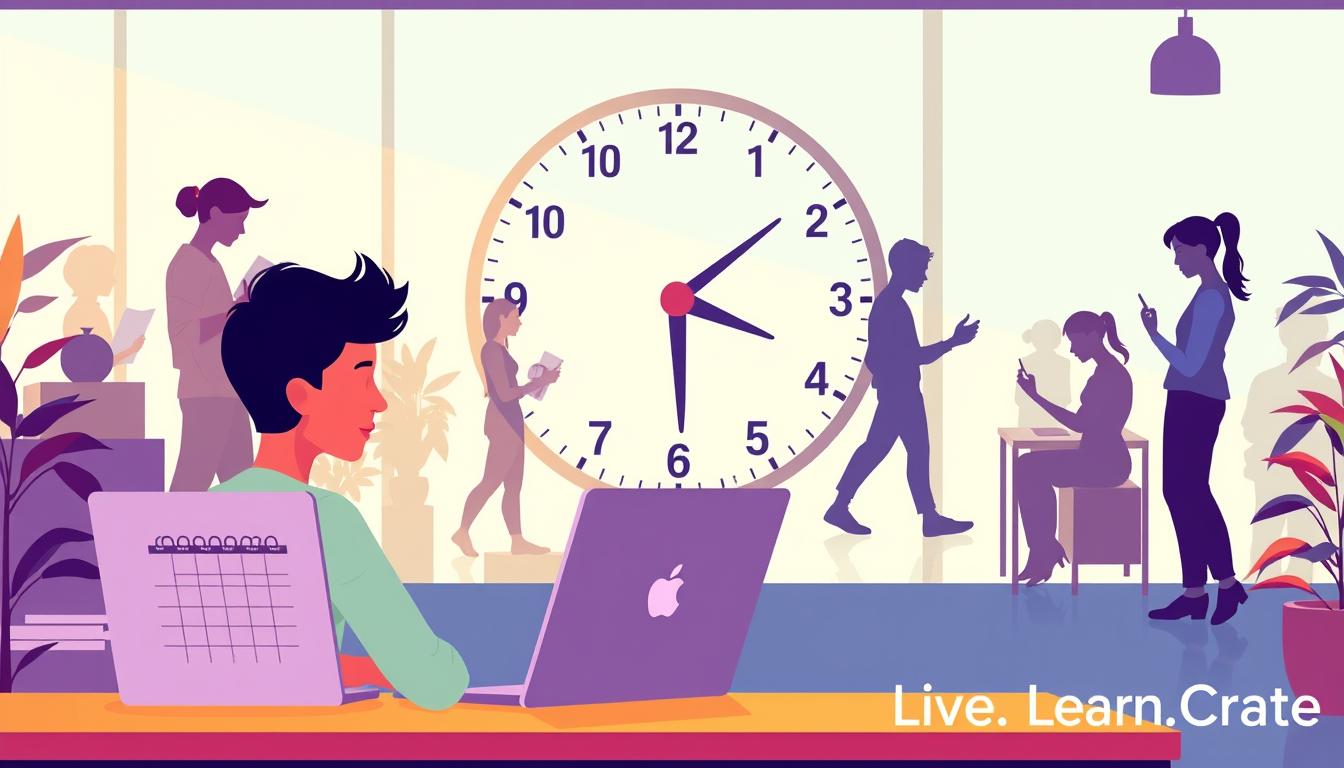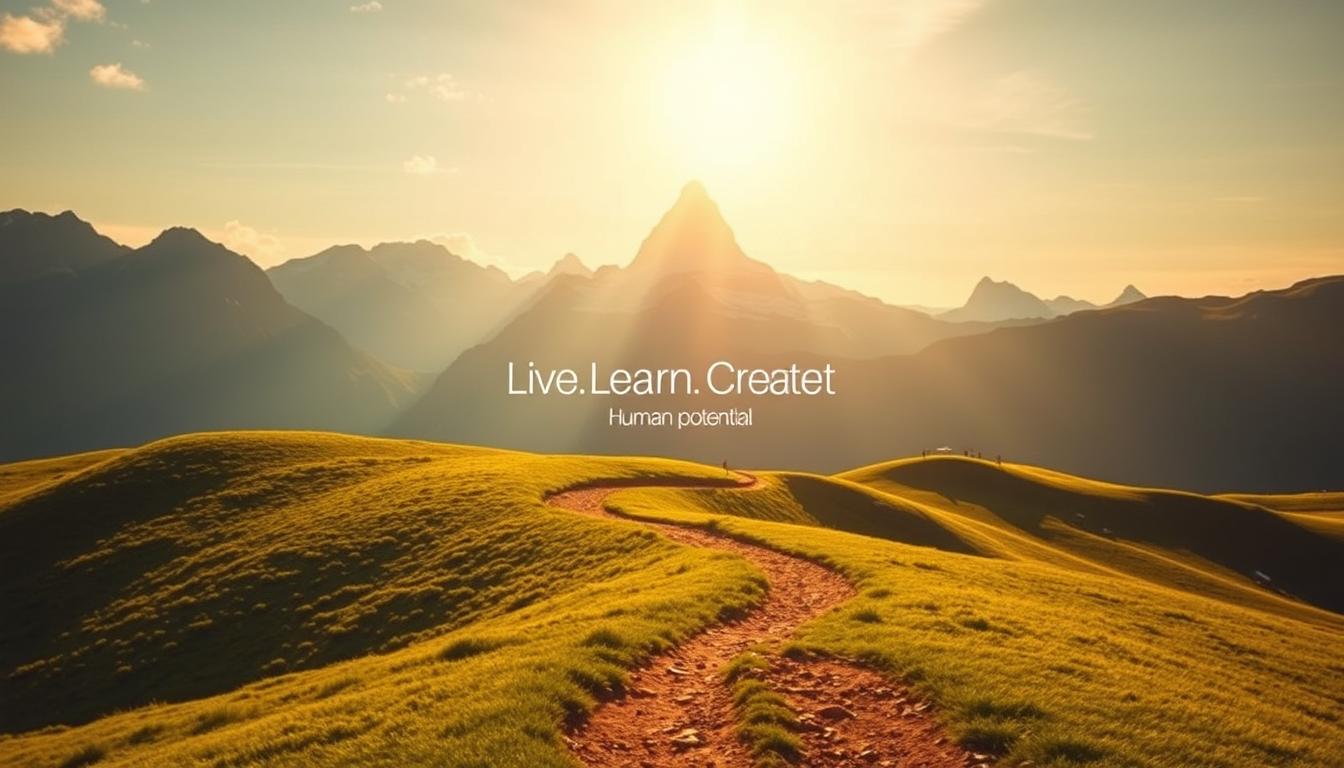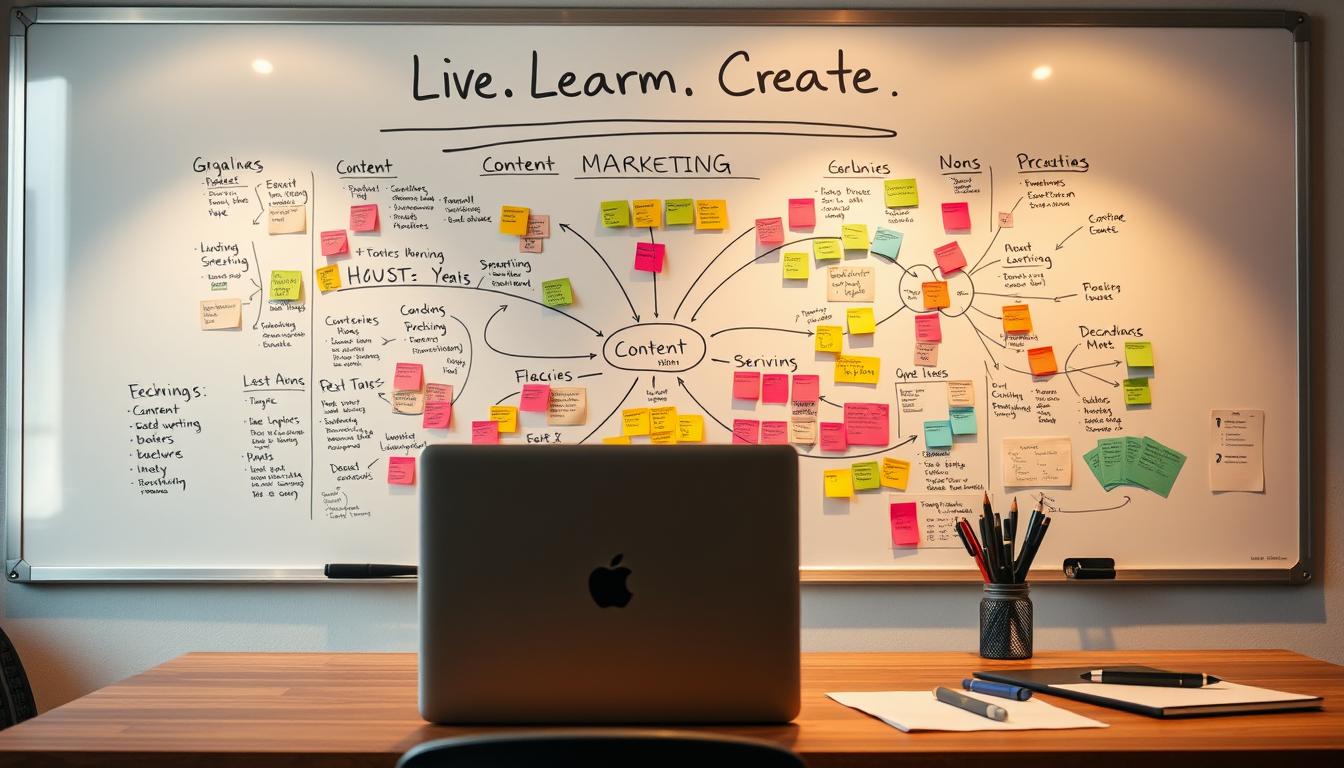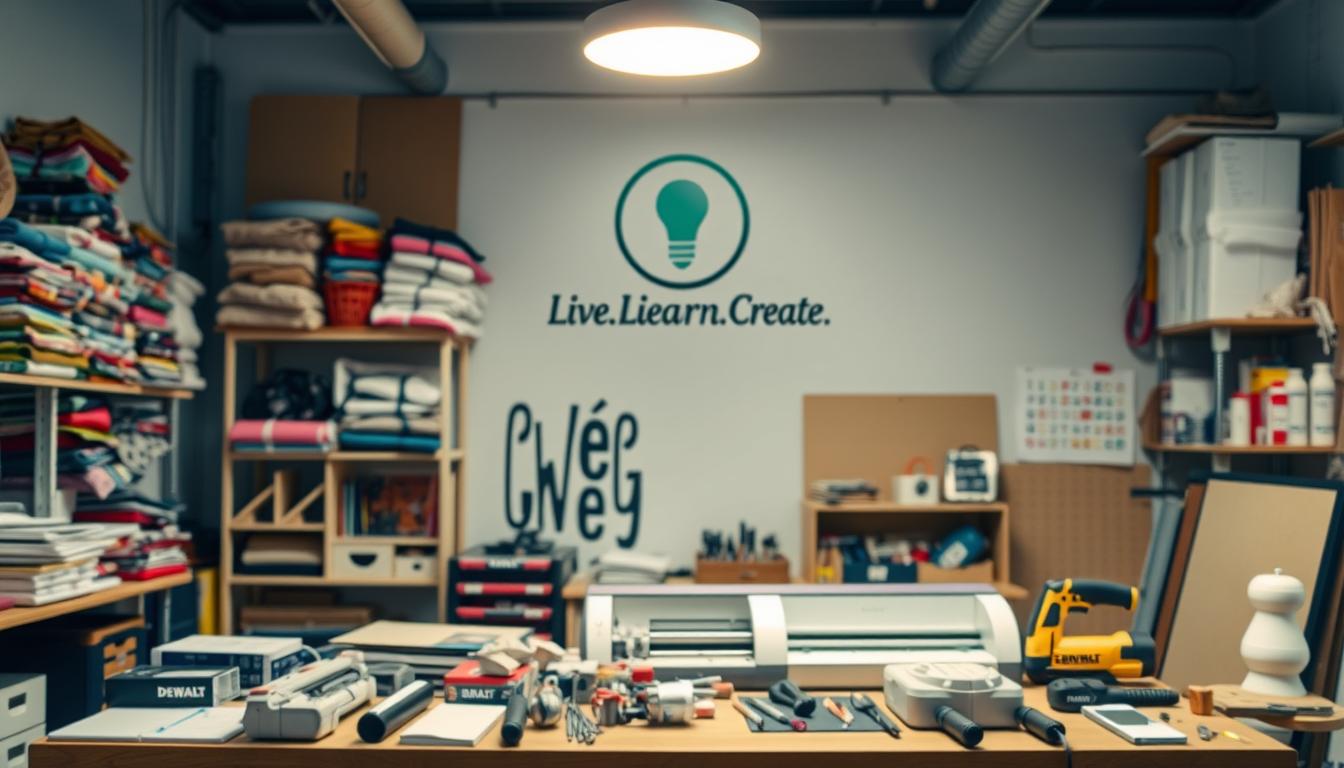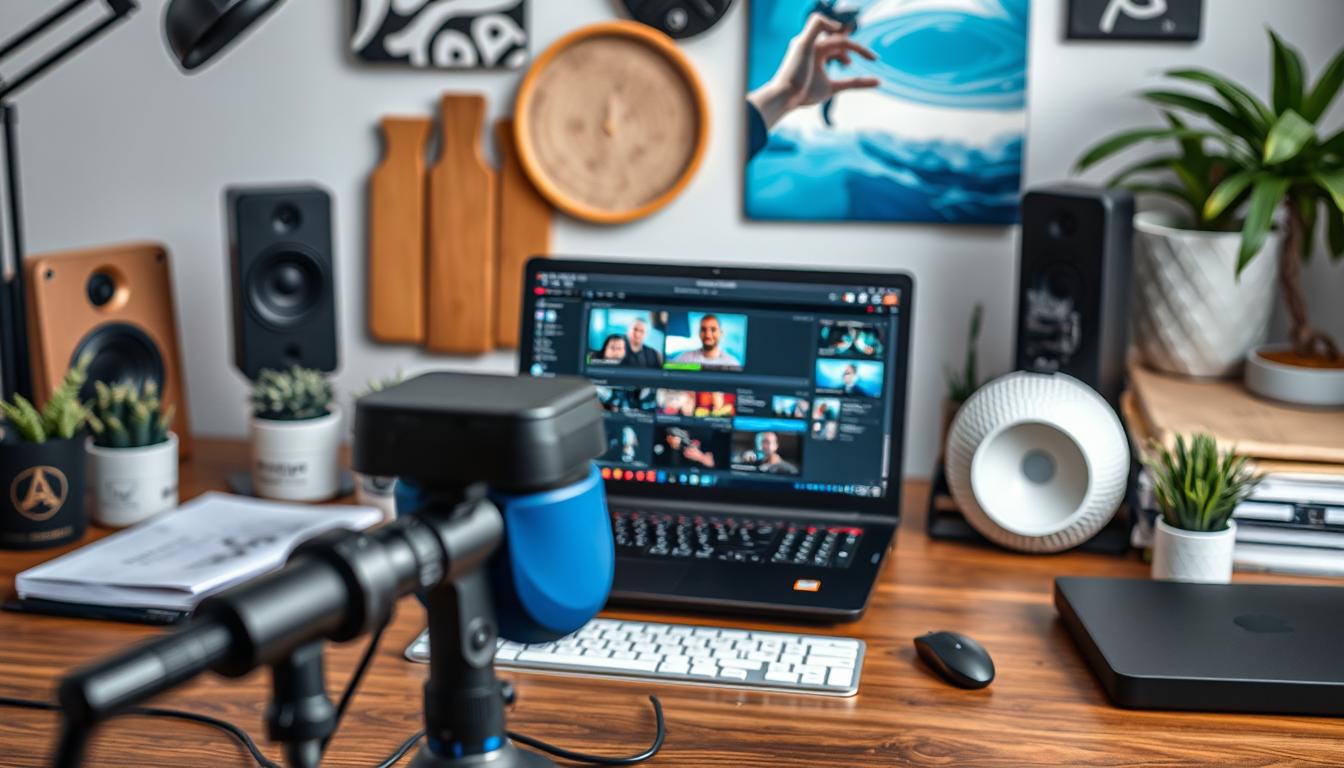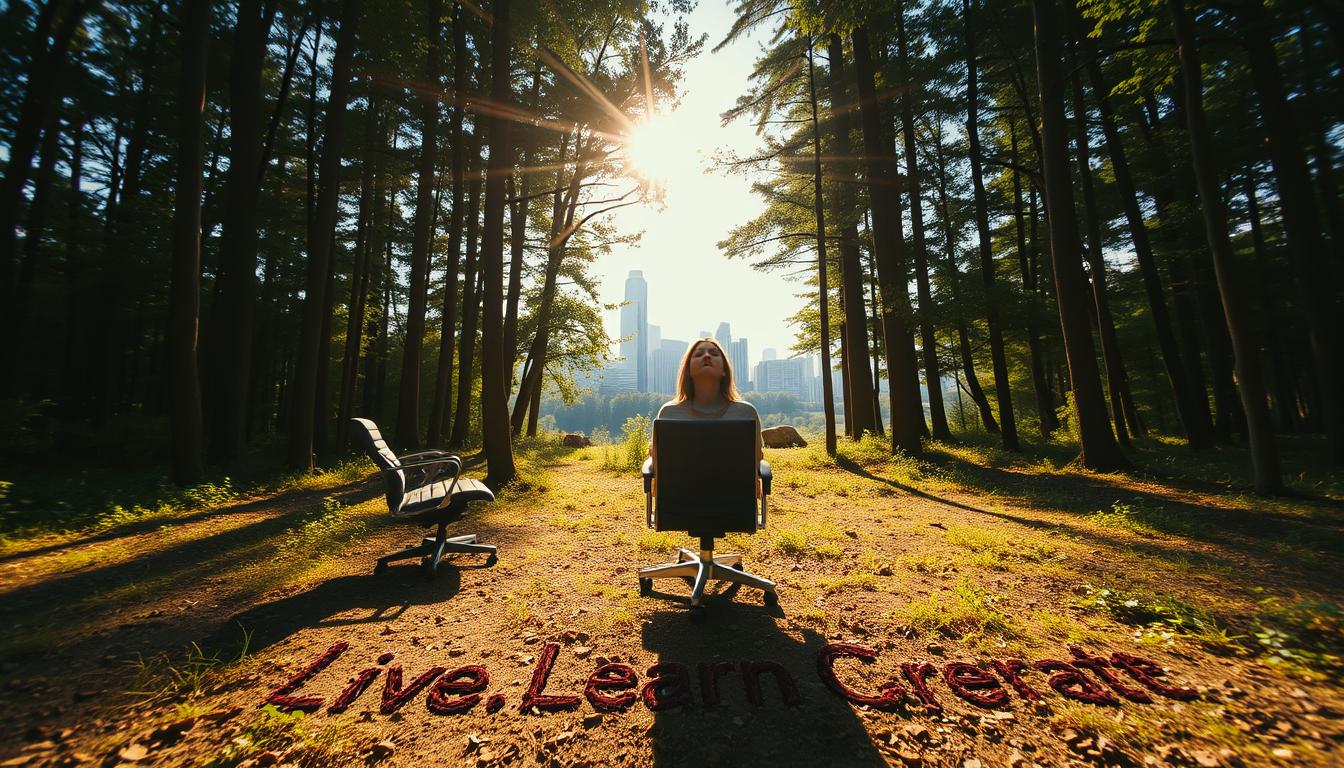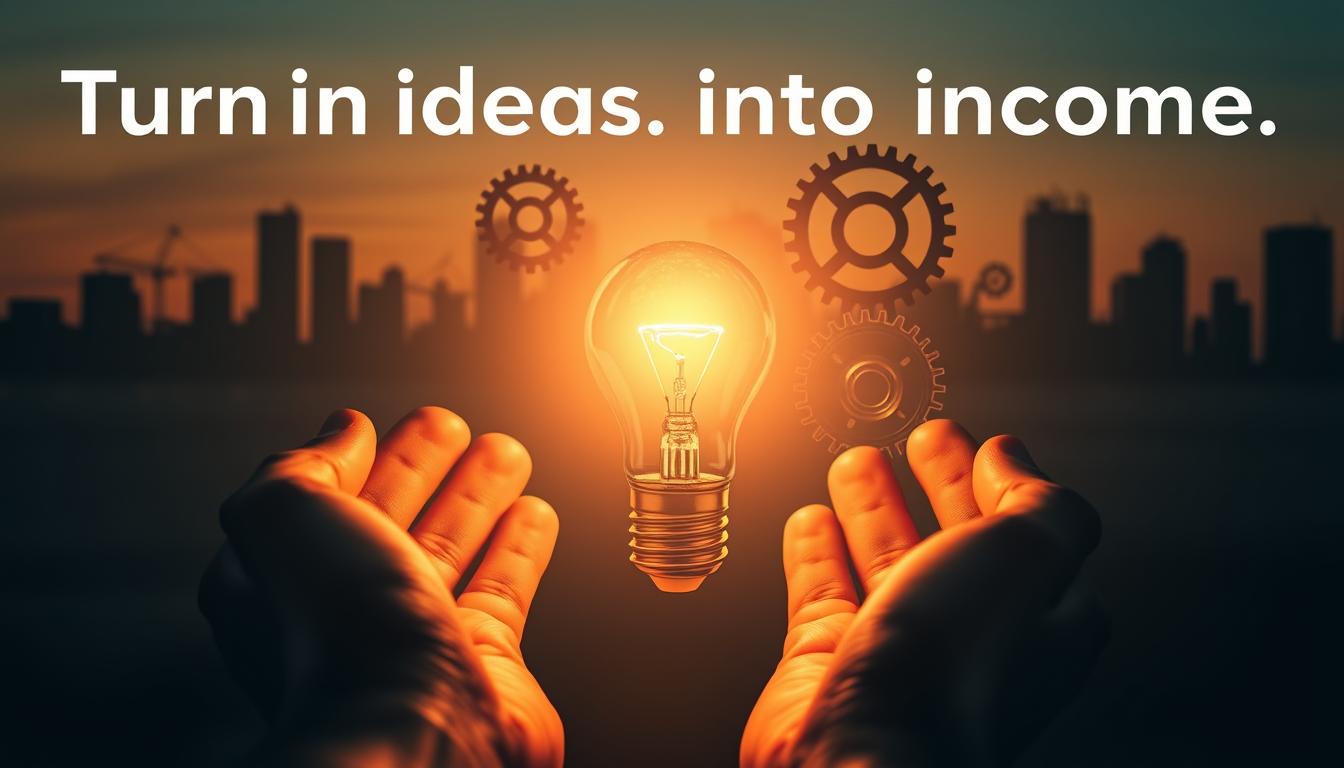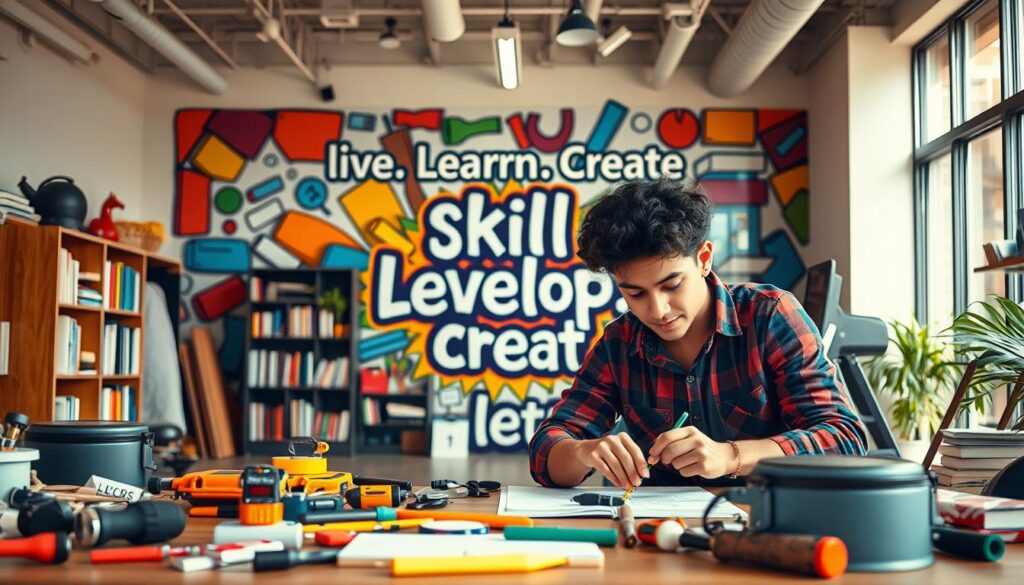
In today’s fast-paced world, the ability to learn and master new skills quickly is crucial for personal and professional growth. Did you know that 49% of skills commonly used by the workforce today are expected to become obsolete by the end of 2024? This stark reality underscores the importance of continuous learning and skill development.
As we navigate this rapidly evolving landscape, traditional notions of skill-building are being challenged. Modern approaches now enable us to build competence in weeks or even days, rather than years. This guide will introduce you to proven techniques that have helped thousands develop valuable skills in record time.
Key Takeaways
- Understand the importance of continuous learning in today’s fast-paced world.
- Discover modern approaches to rapid skill acquisition.
- Learn practical techniques for developing valuable skills quickly.
- Find out how to apply new skills in real-world circumstances.
- Explore how to fit skill development into your busy life.
Understanding the Power of Skill-Building in Today’s World
In today’s fast-paced world, the ability to build new skills is crucial for both personal and professional growth. As we navigate through the complexities of the modern workplace, it’s essential to understand the role of skill-building in enhancing our career prospects and staying relevant in the industry.
What Is Skill-Building and Why It Matters
Skill-building refers to the process of acquiring new skills or enhancing existing ones to improve performance and efficiency. In the context of the workplace, it’s about upskilling to stay ahead in your current role or reskilling to transition into a new one. With automation and technological advancements transforming the way we work, employees must be proactive in their training and development to remain valuable to their organization.
The Difference Between Upskilling and Reskilling
While both upskilling and reskilling are essential for professional development, they serve different purposes. Upskilling involves enhancing your existing skill set to become more proficient or specialized in your current role. On the other hand, reskilling means acquiring entirely new skills to transition into a different role or industry. Understanding which path to take depends on your career goals, industry trends, and personal interests.
To learn more about developing your skills and staying ahead in your career, visit https://livelearncreate.blog for more resources and insights.
Identifying Your Skill Gaps Effectively

Effective skill-building starts with understanding where your gaps lie. In today’s rapidly evolving industry, it’s crucial to stay ahead of the curve by identifying the skills you need to succeed.
Conducting a Personal Training Needs Analysis
A personal training needs analysis is a systematic approach to identifying your skill gaps. It involves assessing your current skills against the requirements of your role or desired career path. By doing so, you can pinpoint areas where you need training or development to stay relevant in the workplace.
Using the Skill Will Matrix for Self-Assessment
The Skill Will Matrix is a valuable tool for self-assessment, helping you evaluate your ability and willingness to perform specific tasks. By plotting your skills against your willingness, you can identify areas where you need to focus your development efforts. This matrix is particularly useful for understanding your learning style and preferences.
Monitoring Industry Trends to Stay Relevant
Staying informed about industry trends is essential for predicting the skills that will be in demand in the future. As noted by industry experts, “staying ahead of the curve requires continuous learning and adaptation.” Regularly reviewing industry publications and reports can help you anticipate future skill requirements. For instance, the growing demand for AI skills across various sectors highlights the importance of staying informed. You can also leverage platforms like LinkedIn to stay updated on evolving market needs.
To stay relevant, it’s essential to be proactive in monitoring industry trends and adjusting your skill set accordingly. By doing so, you can ensure that your skills remain relevant and valuable in the ever-changing workplace.
Ready to start building a life you love? Visit https://livelearncreate.blog for more inspiration, tools, and guides on personal growth.
Proven Skill-Building Techniques for Rapid Learning
Mastering new skills quickly requires a strategic approach. By incorporating effective techniques into your learning routine, you can accelerate your skill-building journey.
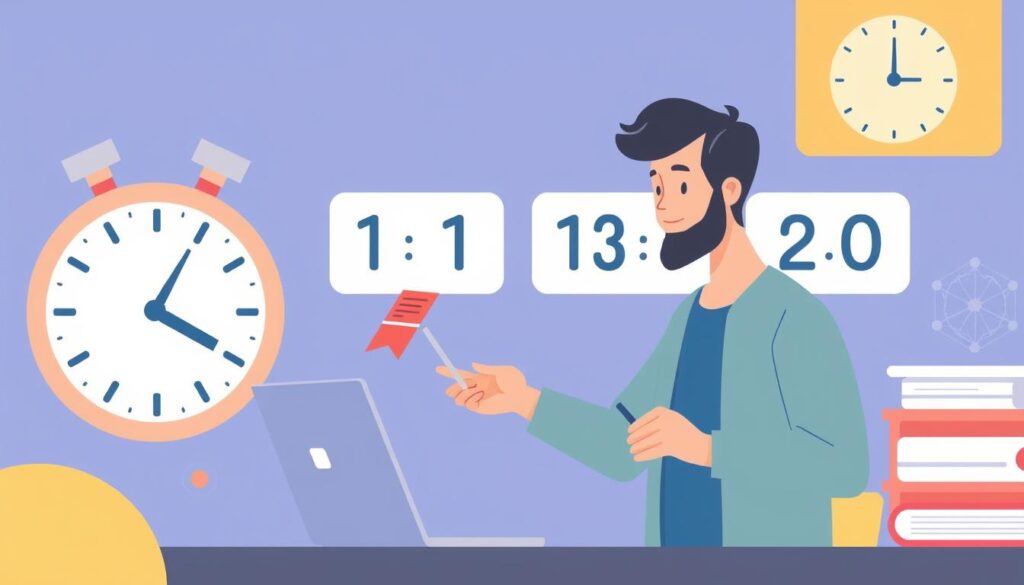
The One-Hour-a-Day Method for Mastering New Skills
Dedicate just one hour a day to learning a new skill, and you’ll be surprised at how quickly you progress. Consistency is key when it comes to building skills. By making learning a daily habit, you reinforce new information and build upon previously learned concepts.
This method works because it allows you to focus on a single skill without feeling overwhelmed. It’s about making progress, not perfection. As you continue this practice, you’ll find that your ability to learn new skills quickly improves.
Setting Clear Proficiency Goals and Timelines
To build skills effectively, it’s crucial to set clear goals and timelines. This involves defining what proficiency means to you and setting realistic targets. Having a clear roadmap helps you stay focused and motivated throughout your learning journey.
By establishing milestones, you can track your progress and make necessary adjustments. This approach not only enhances your learning experience but also provides a sense of accomplishment as you achieve each milestone.
Leveraging Accountability to Accelerate Learning
Accountability is a powerful tool in the skill-building process. When you’re answerable to someone else, you’re more likely to stay committed to your goals. This can be achieved by sharing your objectives with a friend, family member, or mentor, or by joining a community of learners.
Some effective ways to leverage accountability include finding an accountability partner, joining structured accountability groups, or using accountability apps. These methods provide the support and motivation needed to overcome challenges and stay on track.
By combining these techniques—consistency, clear goal-setting, and accountability—you can significantly accelerate your skill-building journey. Remember, the key to rapid learning is not just about the techniques you use, but also about staying committed and motivated.
Connect with a community of lifelong learners and creators at https://livelearncreate.blog to further enhance your skill-building journey.
The Role of Mentoring in Accelerating Skill Development

In the journey of skill-building, having a mentor can be the catalyst that transforms potential into reality. Mentoring is a powerful tool that not only accelerates learning but also provides personalized guidance and support.
How Mentors Fast-Track Your Learning Process
Mentors bring valuable experience and insights to the table, helping mentees navigate through challenges and avoid common pitfalls. Effective mentoring relationships are built on clear communication and mutual respect, allowing for a more focused and productive learning experience.
By having structured conversations, mentors can identify areas where mentees feel less confident or skilled, tailoring their guidance to meet specific needs. This personalized approach to learning accelerates skill development and enhances overall performance.
Finding and Working Effectively with Mentors
Finding the right mentor begins with clarity about what you want to learn. Different skills and career stages benefit from different types of mentoring relationships. Look for potential mentors within your current organization, professional associations, or industry events.
- Be specific about what you hope to learn and how much time you’re asking for.
- Discuss meeting frequency, preferred communication methods, and how you’ll measure progress.
- Come prepared to each mentoring session with specific questions and updates on actions you’ve taken.
- Be receptive to feedback, and look for ways to provide value to your mentor.
By following these guidelines, you can establish a productive mentoring relationship that fosters growth and development. For more insights on personal growth and development, visit https://livelearncreate.blog.
Measuring Success and Applying Your New Skills
Measuring the impact of your skill-building efforts is key to achieving your goals. To do this effectively, you can use the Kirkpatrick Model, a widely recognized framework that evaluates the effectiveness of training programs across four levels: Reaction, Learning, Behavior, and Results.
Start by establishing baseline measurements before you begin your skill-building journey. This could be writing speed, presentation confidence scores, or programming knowledge tests. Having a “before” snapshot makes progress visible. Track both objective metrics (quantifiable results like speed, accuracy, or output) and subjective experiences (confidence levels, ease of performance, and enjoyment).
Regular self-assessment using the Kirkpatrick Model helps you evaluate your skill building at four levels: your reaction to the learning process, the knowledge you’ve gained, how your behavior has changed, and the tangible results you’re achieving. Look for opportunities to apply your new skills in real-world settings, and seek feedback from others who can observe your skill application.
Celebrate your progress milestones, no matter how small, and continually raise the bar by taking on more challenging applications or adding complexity. Remember that skill building is rarely linear, and expect plateaus and occasional setbacks as natural parts of the learning process.
Ready to turn your passion into a project? Discover your purpose at https://livelearncreate.blog. Prioritize your well-being and find a healthier you at https://livelearncreate.blog.
FAQ
What is the best way to identify areas where I need to improve my skills?
Conducting a personal training needs analysis and using tools like the Skill Will Matrix can help you assess your current abilities and pinpoint areas for growth.
How can I effectively build new skills in a short amount of time?
Techniques like dedicating one hour a day to learning, setting clear proficiency goals, and leveraging accountability can accelerate your skill development process.
What is the difference between upskilling and reskilling, and how do they impact my career?
Upskilling involves enhancing your existing skills, while reskilling means acquiring new skills for a different role or industry – both are essential for staying relevant in today’s fast-paced work environment and supporting your overall career growth.
How can mentoring programs support my learning and development?
Working with a mentor can provide valuable guidance, support, and feedback, helping you navigate the learning process and achieve your goals more efficiently.
What are some effective ways to measure the success of my skill development efforts?
Setting clear goals and timelines, tracking your progress, and applying your new skills in real-world situations can help you evaluate the effectiveness of your training and make adjustments as needed.
How can I stay motivated and committed to my skill development journey?
Surrounding yourself with a supportive community, celebrating small wins, and focusing on the benefits of your new skills can help you stay motivated and engaged throughout the learning process.
Transform your home into a more peaceful and mindful sanctuary. Creating a Zen-inspired home environment is a core part of the “Live.Learn.Create” theme, focusing on peace, mindfulness, and a clutter-free space. Here is a curated list of Zen home items.
The Zen Essentials
These items are the building blocks of a calm, intentional living space.
- Candles & Scents:
- Scented Candles: Look for calming, natural scents like sandalwood, lavender, white tea, or bergamot. Choose candles made with soy or beeswax for a clean burn.
- Essential Oil Diffusers: A minimalist, sleek diffuser made of bamboo, ceramic, or glass.
- Essential Oil Sets: Look for blends specifically for relaxation, focus, or sleep.
- Incense & Burners: Natural incense sticks (e.g., palo santo, sage) with a simple, elegant burner.
The Zen Decor
This is about incorporating natural elements and simple design.
- Natural Materials:
- Wood or Bamboo Trays: For organizing candles, stones, or other small items.
- Ceramic Vases: Simple, unglazed ceramic vases in neutral colors like white, beige, or gray.
- Minimalist Art: Simple line drawings, abstract prints, or nature-inspired artwork.
- Hand-Carved Stone Coasters: Or other small stone sculptures.
- Textiles:
- Linen or Cotton Throws: A soft, neutral-colored throw blanket to add warmth.
- Jute or Sisal Rugs: These add natural texture and grounding to a space.
- Meditation Cushions (Zafu) & Mats (Zabuton): These provide comfort for meditation and add a serene touch to a room.
The Zen Ambiance
These items help create a peaceful sensory experience.
- Lighting:
- Himalayan Salt Lamps: These provide a warm, soft glow.
- Japanese-style Paper Lanterns: For a soft, diffused light source.
- Dimmable Smart Bulbs: To easily control the warmth and brightness of your lighting.
- Sound:
- Tabletop Water Fountains: The gentle sound of running water is incredibly calming.
- Wind Chimes: Made from natural materials like bamboo or metal for a soft sound.
- Bluetooth Speakers: Small, aesthetically pleasing speakers for playing ambient or meditation music.
- Nature:
- Bonsai Trees or Air Plants: Low-maintenance indoor plants that bring life and a touch of nature indoors.
- Zen Gardens: A small, tabletop sand garden with a rake and stones for a meditative ritual.
- Decorative Rocks & Pebbles: For bowls or as a decorative element.
Best Sellers https://amzn.to/3Vet1tI
New Releases https://amzn.to/4mwLjTi
Amazon Movers & Shakers https://amzn.to/4fPsZlP
Mindfulness Coloring Books https://amzn.to/4fQ0wMx
Personal Growth Coloring Books https://amzn.to/4lJeRf0
Health & Wellness https://amzn.to/4oRt24C
Zen Home Decor https://amzn.to/3VeA3i6
Zen Garden Decor https://amzn.to/4mXjT8D
Zen Garden https://amzn.to/3HQTVVB
- Mindfulness & Meditation:
- Physical Wellness:
- Habit & Productivity Tools:
- Books:
- Best-selling personal development books (Mindset, The 7 Habits of Highly Effective People, The Subtle Art of Not Giving a F*ck)
- Books on a variety of skills (coding, photography, writing.)
- Educational Gadgets:
- Smart pens that digitize notes (e.g., Rocketbook)
- Portable scanners for digitizing documents
- Laptops, tablets, and accessories
Create (Creativity, Innovation, Projects)
These products cater to your creative side, whether you are a artists, writer, or DIY enthusiasts.
- Creative Supplies:
- Adult coloring books or “paint-by-sticker” books
- Craft kits (e.g., candle-making, pottery, embroidery)
- Digital Creation Tools:
- General Inspiration & Making:

